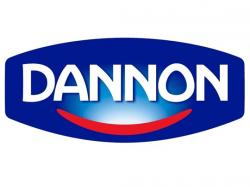Dannon & Its Farmer Partners Convene Third Annual Forum To Further Collaborate On Providing More Choice For American Yogurt Shoppers
October 27, 2016 | 3 min to read

WHITE PLAINS, N.Y. — The Dannon Company and the farmer partners who work with Dannon concluded their annual two-day forum last night in Lexington, KY as they further develop alternative models of dairy supply to make the company's yogurt. As the leading maker of yogurt in the USA, Dannon has earned this position based on the variety of choices it makes available to American shoppers and the integrity with which they are made. During the past several years both Dannon's business and the yogurt category have grown significantly, in part attributable to the variety of choices the company provides.
Making yogurt begins with wholesome milk that farmers sell to Dannon, and during the past five years Dannon has built direct and bi-laterally transparent relationships with its independent American dairy farmer partners. This involves Dannon providing a fixed margin to its farmer partners to help support their sustainability, independence and growth. "My family has been dairy farming for four generations, and now we provide milk exclusively to Dannon. We have a dedicated partner in Dannon who we trust and we can rely on for stable pricing. But even more important is our shared vision for sustainability and animal welfare," said Ken McCarty, a co-owner and manager of McCarty Family Farms. "As far as I know Dannon is the only dairy processor that requires its producers to obtain animal welfare certification, to make sure that on-farm practices are truly best in class. And when it comes to doing more with fewer natural resources, Dannon has given us the means to keep more water on the farm by helping us to build a milk condensing plant – the first of its kind in North America – to keep more water on the farm. This helps to shape our perspective on the future and ensure that the next generation of McCartys and other farmers will continue in our footsteps."
Together with its farmer partners and others, Dannon is beginning to implement the Dannon Pledge, announced in April 2016, which commits to evolve the Dannon, Danimals and Oikos brands to be made with non-GMO ingredients. In addition and as part of the company's ambition to secure independent verification from the Non-GMO Project, the company and its farmer partners have committed to convert the diet for the cows that provide the milk for these products to be non-GMO by the end of 2018, specifically Dannon and Danimals during 2017 and Oikos during 2018. These three brands represent about half of Dannon's portfolio of products.
Shopper preferences are at the center of how Dannon makes it products and Millennials in particular are expressing greater expectations for transparency and naturality in their food choices. Some Dannon products will continue to be made with GMO ingredients, as it is our belief that the currently approved GMOs are safe. Based on shopper preference for more transparency about the foods they choose, the presence of GMO ingredients will be disclosed on-pack on products that contain them by the end of 2016, ahead of the schedule outlined in the Dannon Pledge. For additional information or to learn about a specific product, visitwww.dannon.com/ingredients.
For all of Dannon's products, to help improve sustainable agricultural practices and protect biodiversity, the company is working with its farmer partners to improve in areas including animal welfare, soil health, water quality and quantity, an increase in biodiversity, and decrease in carbon emission and energy use. "We believe that sustainable agricultural practices can be achieved with or without the use of GMOs," said Mariano Lozano, CEO of The Dannon Company. "And we will fulfill the growing consumer preference for yogurt with non-GMO ingredients by continuing to work with the dedicated and extraordinary network of farmer partners we have built. The changes we are making will enable shoppers to make everyday choices for themselves, their family and children consistent with their wish for more natural eating options, choosing which agricultural and environmental model they favor."
Source: Dannon
